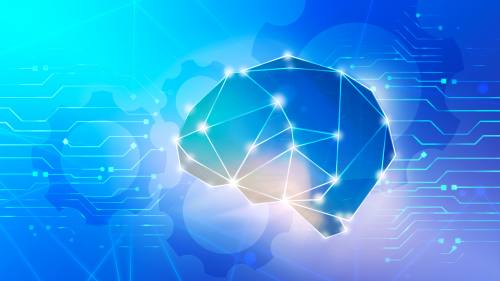

At Quantum Gaming, we are pursuing the goal of establishing a new computer game genre: Self-Learning AI Games.
The requirements for characters and bots in computer games are often that they should give the impression of being intelligent, human-like and believable. It is all the more astonishing that AI in games is seldomly inspired by human cognition, although many industries other than the games industry have recently made remarkable advances with precisely this.
At least by academic standards, game bots are still somewhere between old-fashioned and well-established: The "intelligence" and even the faulty behavior of game AI are mostly just the result of elaborate scripting and simple algorithms such as pre-defined decision trees. Their difficulty and degree of mastery is mainly realized by means of "cheating". Virtually no sensory perception, no learning, no adaptation, no logical thinking, no planning, no decision-making, no motivation and no motor control take a part - or simply: no cognition.
There are of course good reasons for this. Game AI must be tailored to typical consumer hardware, and the behavior of the AI must be predictable in order to ensure smooth interaction with the game concept. The use of modern AI in game development, e.g. for procedural content generation, shows that the necessary competencies are indeed available. In the games industry, however, the integration of learning game characters continues to be bypassed because it is not possible to clearly define what exactly is learned in the game and when, and how this influences gameplay and story, which are usually very precisely defined in classic game concepts. In fact, today's computer game genres and game culture have evolved over the past few decades with and through these limitations of AI players. While the level of difficulty of earlier games was mainly determined by your motor skills to handle the controller, modern games have become increasingly complex, more imaginative, open and, in particular, more graphically realistic. Nonetheless, bots are still acting in predefined ways.
We face the challenges that arise from integrating self-learning bots in games by applying the latest findings in cognitive sciences and breaking up the structures and limitations of classic genres. We create intelligent, simulated life forms in computer games and novel game concepts.


The intelligence of higher life forms is the result of millions of years of evolutionary competition in which efficiency and adaptability were an important factor for survival. brAIn engine is a cognitive architecture that models how the human brain works. As such, it is not a monolithic, purely reactive system that uses huge amounts of data to determine statistical coherences, like many of the popular AIs. It is also not a system that needs millions of computing hours on a supercomputer for learning or reasoning and thus can never be used on consumer hardware, like some flagship projects from industry and science. Rather, brAIn engine is a complex, recurrent interplay of efficient and specialized neural network modules that reproduce aspects of the mind and regions of the brain, including their mental development.
brAIn engine is created with industrial requirements in mind and with the aim of being consumer-oriented. We apply brAIn engine to create the first cognitively plausible AI for computer game characters. These characters are empathic, motivated, have realistic motor control, have implicit and explicit memory structures, imagination, the ability to interact with objects and other characters, to abstract situations, and to plan on different levels of abstraction. Most importantly, they learn all of this from scratch, just like a newborn would. This means that everything that a character controlled by can do and does, is first learned on the consumers hardware and not specified by our developers. So, in a game with brAIn engine, the way you play allows you to create your own personalized AI.